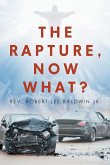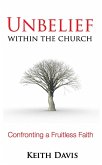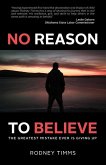In Mark 9, a father whose son was tormented by a demon came to Jesus for healing. The words of the father sounds familiarly inconsistent, "I believe; help my unbelief." We must admire his transparency, which resonates with us. He wanted more than anything for his son to be healed. Only this itinerant teacher could heal him from the threat of injury and possibly death. When he went to the disciples first and they couldn't heal his boy, then his faith was shaken. The inconsistency in his words describes a common reality we share as human beings. Believing and having unbelief at the same time sounds like a contradiction. The objective is to know all people have beliefs and doubts. It is obvious at home, in school, at work-everywhere. Sometimes Christians need to hear one can believe and be given permission to have doubts in matters of faith. Long-established interpretations and organizational structures may be necessary but are not to displace the reality of God's love, grace, and truth, shown in the crucifixion and resurrection of Christ. I Believe; Help My Unbelief is an attempt to give the reader permission to find positive joy and love for God and demonstrated in our love for each other. It is not necessary to be examples to the world as keepers of truth but rather embracing love for all people just as God has loved us. This is one thing all Christians can agree upon-to love all people as God has loved us.
Hinweis: Dieser Artikel kann nur an eine deutsche Lieferadresse ausgeliefert werden.
Hinweis: Dieser Artikel kann nur an eine deutsche Lieferadresse ausgeliefert werden.








